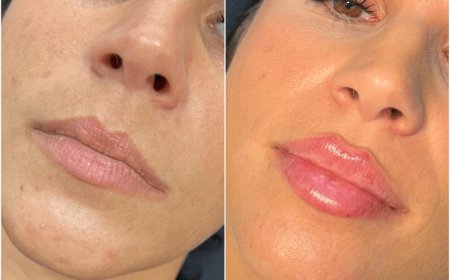Top Questions to Ask Your GERD Doctor Before Starting Treatment
Meeting a GERD doctor for the first time? Ask these essential questions to better understand your diagnosis, treatment options, and how to manage GERD long term.
If youve scheduled your first appointment with a GERD doctor, youve already taken a critical step toward reclaiming control of your digestive health. Preparing a list of thoughtful questions can help you get the most out of your consultation and start your treatment journey with confidence.
Why Ask Questions?
Asking the right questions ensures you:
-
Understand your diagnosis and treatment options
-
Know what lifestyle adjustments to make
-
Can anticipate potential side effects
-
Are involved in shared decision-making with your GERD doctor
Before the Appointment
Bring the following to make the most of your visit:
-
A list of your symptoms and how long theyve lasted
-
Current medications and supplements
-
Dietary habits and lifestyle factors
-
Previous treatments tried
Key Questions to Ask
1. What exactly is causing my symptoms?
This helps you understand whether your condition is due to GERD, another gastrointestinal issue, or a combination of factors.
2. How severe is my GERD?
Your GERD doctor may use tests like an endoscopy or pH monitoring to determine how far your condition has progressed.
3. What lifestyle changes should I make?
Every patients triggers are different. You might be advised to:
-
Avoid spicy or acidic foods
-
Eat smaller meals
-
Stop eating close to bedtime
-
Lose weight if needed
4. What are my treatment options?
Treatment may include:
-
Antacids
-
H2 blockers
-
Proton pump inhibitors (PPIs)
-
Surgical options like fundoplication or LINX
5. Are these medications safe for long-term use?
Understanding side effects and long-term implications is crucial for making informed decisions.
6. Will I need any tests or procedures?
Tests like endoscopy, esophageal manometry, and pH monitoring can help tailor your treatment plan.
7. Could this be something more serious?
Chronic GERD can lead to complications like Barretts esophagus or esophageal cancer. A GERD doctor can assess your risk.
8. How often should I follow up with you?
Ongoing monitoring ensures treatment effectiveness and early detection of complications.
9. What dietary recommendations do you have for GERD?
Your GERD doctor may suggest a GERD-specific diet, rich in low-acid, non-irritating foods.
10. Are there any alternative treatments I should consider?
In some cases, acupuncture, herbal supplements, or behavioral therapy may complement conventional treatments.
Tips for a Productive Visit
-
Take notes or bring someone with you
-
Ask for written instructions or educational resources
-
Dont hesitate to ask follow-up questions
Red Flags to Watch For
Even if youre undergoing treatment, you should contact your GERD doctor if you experience:
-
Difficulty swallowing
-
Unintentional weight loss
-
Black or bloody stools
-
Chest pain not related to heartburn
FAQs
Q1: What if my symptoms return after stopping medication?
A: GERD often requires long-term management. Your GERD doctor will advise whether to resume or adjust your treatment.
Q2: How soon can I expect to feel better?
A: Many patients report improvement within a few days to weeks of beginning treatment.
Q3: Will diet alone cure GERD?
A: While diet helps, most patients benefit from a combination of lifestyle changes and medication.
Q4: Is GERD linked to other health conditions?
A: Yes. GERD has been associated with asthma, chronic cough, and even sleep disorders.
Q5: Can stress make GERD worse?
A: Absolutely. Stress management can significantly improve symptoms when combined with medical treatment.
Final Thoughts
Going to a GERD doctor is an empowering move, but its only the beginning. The more informed and proactive you are, the better your outcomes will be. Dont be afraid to speak up, ask questions, and collaborate closely with your doctor to find lasting relief.









































